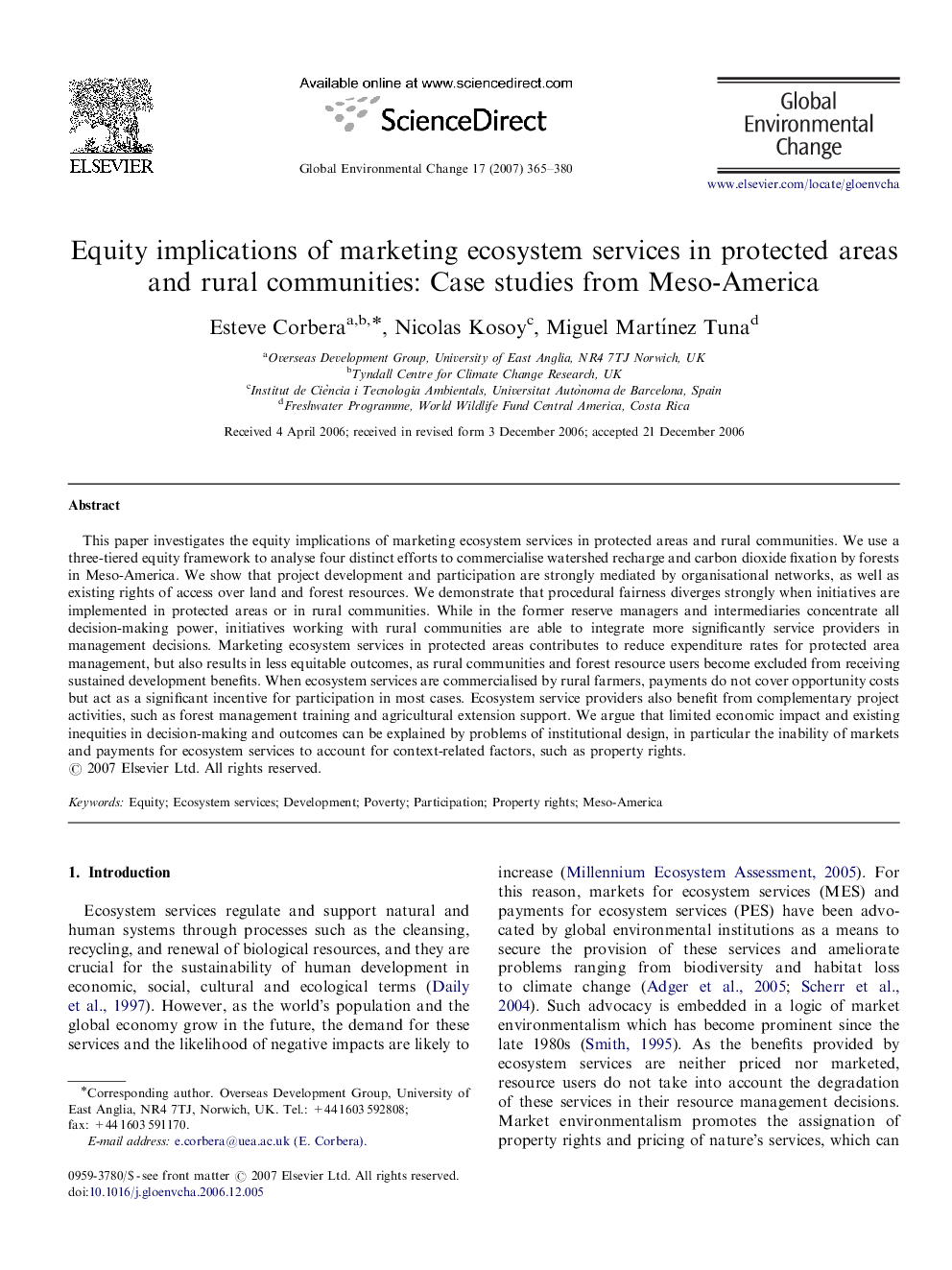| کد مقاله | کد نشریه | سال انتشار | مقاله انگلیسی | نسخه تمام متن |
|---|---|---|---|---|
| 1055142 | 1485136 | 2007 | 16 صفحه PDF | دانلود رایگان |

This paper investigates the equity implications of marketing ecosystem services in protected areas and rural communities. We use a three-tiered equity framework to analyse four distinct efforts to commercialise watershed recharge and carbon dioxide fixation by forests in Meso-America. We show that project development and participation are strongly mediated by organisational networks, as well as existing rights of access over land and forest resources. We demonstrate that procedural fairness diverges strongly when initiatives are implemented in protected areas or in rural communities. While in the former reserve managers and intermediaries concentrate all decision-making power, initiatives working with rural communities are able to integrate more significantly service providers in management decisions. Marketing ecosystem services in protected areas contributes to reduce expenditure rates for protected area management, but also results in less equitable outcomes, as rural communities and forest resource users become excluded from receiving sustained development benefits. When ecosystem services are commercialised by rural farmers, payments do not cover opportunity costs but act as a significant incentive for participation in most cases. Ecosystem service providers also benefit from complementary project activities, such as forest management training and agricultural extension support. We argue that limited economic impact and existing inequities in decision-making and outcomes can be explained by problems of institutional design, in particular the inability of markets and payments for ecosystem services to account for context-related factors, such as property rights.
Journal: Global Environmental Change - Volume 17, Issues 3–4, August–October 2007, Pages 365–380